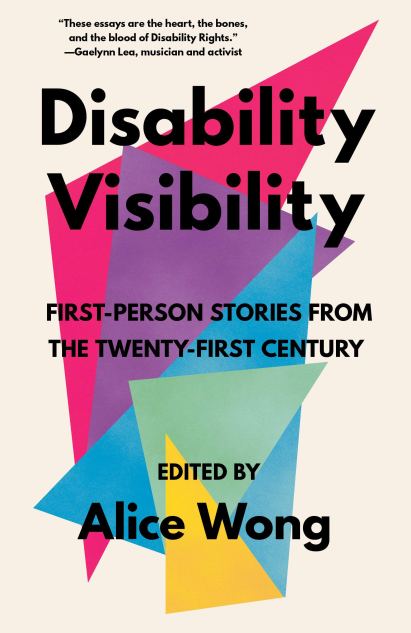Indy Book Club January Pick: ‘Disability Visibility’
‘Disability Visibility: First-Person Stories from the Twenty-First Century,’ Edited by Alice Wong

Indy Book Club January Pick: Disability Visibility
‘Storytelling itself is an activity, not an object. Stories are the closest we can come to a shared experience. Like all stories, they are most fundamentally a chance to ride around inside another head and be reminded that being who we are and where we are, and doing what we’re doing, is not the only possibility.’
—Harriet McBryde Johnson, Too Late to Die Young: Nearly True Tales from a Life (2006)
So reads the epigraph at the beginning of Disability Visibility: First-Person Stories from the Twenty-First Century, a collection of essays written by people with disabilities about their lived experiences. Edited by Alice Wong, creator of the Disability Visibility Project, podcaster, and longtime disability rights activist, this book is the culmination of many years of gathering and sharing such stories. The stories offer a wide range of human experiences told using different storytelling techniques. They are a diverse array of voices and experiences from the disability community that illustrates the many different ways people live their lives. The book consists of 17 essays separated into four sections — Being, Becoming, Doing, and Connecting — and these stories highlight struggles and joys, love and pain, heartbreak and hope.
Sign up for Indy Today to receive fresh news from Independent.com, in your inbox, every morning.
Many of the stories in this collection moved me. One of the most notable was “Unspeakable Conversations” by Harriet McBryde Johnson, extolling her conversations with philosopher Peter Singer, who promotes the infanticide of children with disabilities. This essay is complex and turned many of my preconceived notions upside down. Another moving story is only two pages long and is titled “The Isolation of Being Deaf in Prison” by Jeremy Woody. Other essays discuss sexuality, gender, melanin, motherhood, and even public transportation, all through the lens of the disability experience.
To put it simply, this book and these stories broadened and changed my worldview, but more importantly, it is a place for people with disabilities to see themselves reflected. I believe this book should be required reading for all humans. That’s because having real equity in our society means that we must first see the perspectives of others who live differently from ourselves. We must act to make the world a more just place for all people and for all the different ways they move through it.
For those interested in more first-person narratives of life with a disability, I suggest continuing with The Collected Schizophrenias by Esmé Weijun Wang. For the first three months of 2022, the Indy Book Club focuses on Biographies and Memoirs. Disability Visibility: First-Person Stories from the Twenty-First Century is the featured read for January. For more info, please visit independent.com/indybookclub.
Support the Santa Barbara Independent through a long-term or a single contribution.




You must be logged in to post a comment.